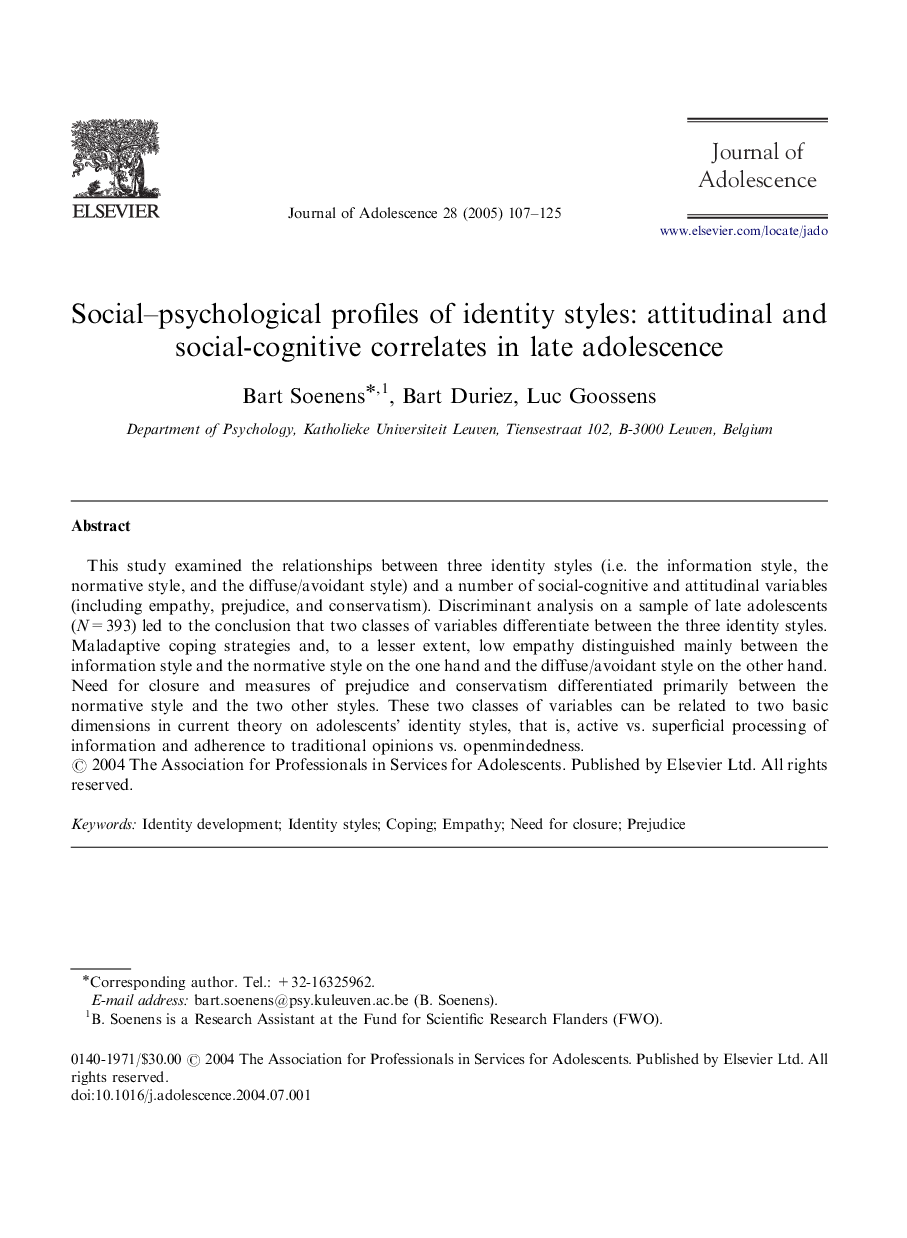| Article ID | Journal | Published Year | Pages | File Type |
|---|---|---|---|---|
| 10436980 | Journal of Adolescence | 2005 | 19 Pages |
Abstract
This study examined the relationships between three identity styles (i.e. the information style, the normative style, and the diffuse/avoidant style) and a number of social-cognitive and attitudinal variables (including empathy, prejudice, and conservatism). Discriminant analysis on a sample of late adolescents (N=393) led to the conclusion that two classes of variables differentiate between the three identity styles. Maladaptive coping strategies and, to a lesser extent, low empathy distinguished mainly between the information style and the normative style on the one hand and the diffuse/avoidant style on the other hand. Need for closure and measures of prejudice and conservatism differentiated primarily between the normative style and the two other styles. These two classes of variables can be related to two basic dimensions in current theory on adolescents' identity styles, that is, active vs. superficial processing of information and adherence to traditional opinions vs. openmindedness.
Related Topics
Health Sciences
Medicine and Dentistry
Public Health and Health Policy
Authors
Bart Soenens, Bart Duriez, Luc Goossens,
